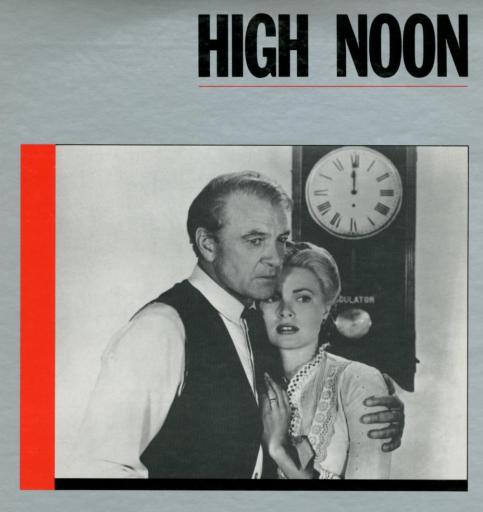High Noon |
|||||||
|---|---|---|---|---|---|---|---|
| Primary Creator |
|
||||||
| Contributor(s) |
|
||||||
| Properties |
|
||||||
| Name of Work | High Noon | ||||||
| Production Date | 1952 | ||||||
| Production Location |
|
||||||
| Current Location |
|
||||||
| Media Types | film | ||||||
| General Notes | |||||||
Description
On the day he gets married and hangs up his badge, lawman Will Kane is told that a man he sent to prison years before, Frank Miller, is returning on the noon train to exact his revenge on him and the town.
Will decides he must go back and face Miller. However, when he seeks the help of the townspeople he has protected for so long, they turn their backs on him. It seems Kane may have to face Miller alone, as well as the rest of Miller's gang, who are waiting for him at the station. Further his new wife is a pacifist who rejects her husband's life work, and won't help him. Further the town people and the deputy marshall abandon him. The movie is a real-time movie, wherein the movie time pretty much mirrors the hour plus length of the time portrayed in the movie. Eventually the train arrives with the grim killer aboard and the action proceeds to its surprising end.
Theme
Civil Society is the ideal, and worth fighting for. Doing what is right is the right way to live. Don't let the evil bastards win. The theme is expressed repeatedly in the movie via the contrast of the Marshall who grimly faces the need to do what he lives for, despite the death facing him, vs. the mealy mouthed town folk, many of which who won't fight for their civil society, and vs. the deputy marshall who portrays the sellout who will give into evil force in order to "get along".
Emotional Sum or Sense-of-life
There is palpable evil in the world. There is heroism in the face of evil in the world. The movie is full of fear and foreboding and betrayal.
Context Information
Tags
Western
